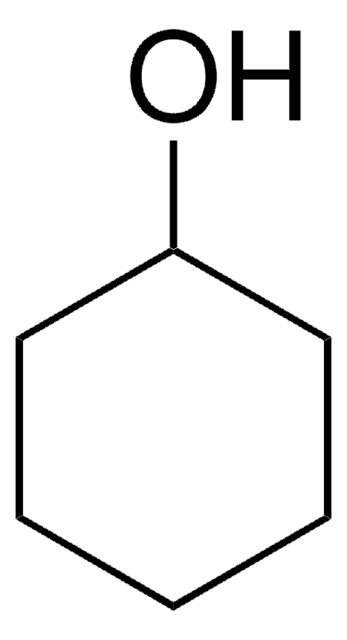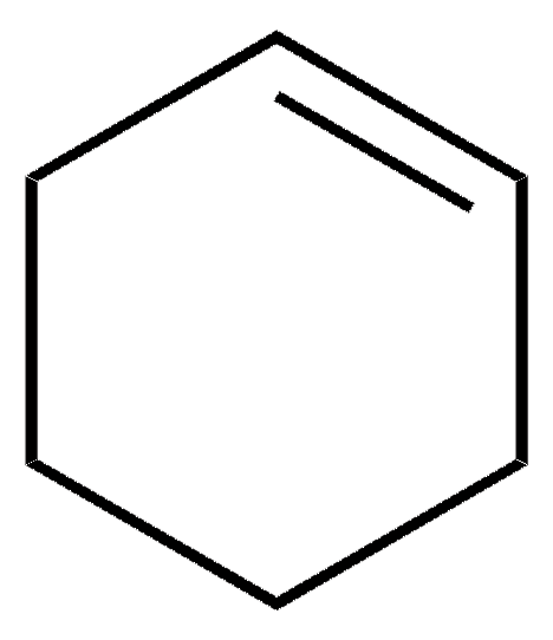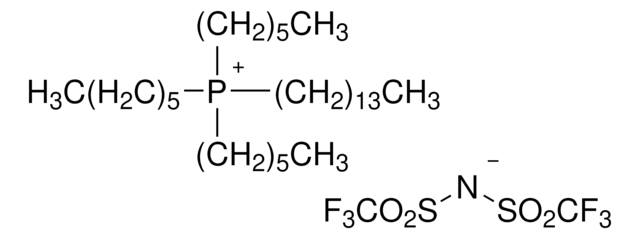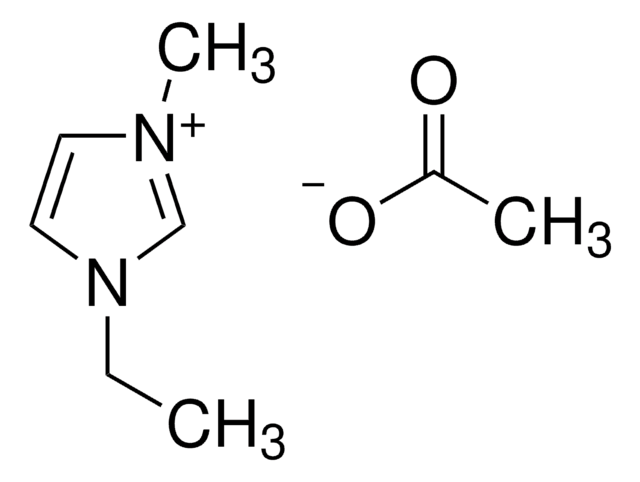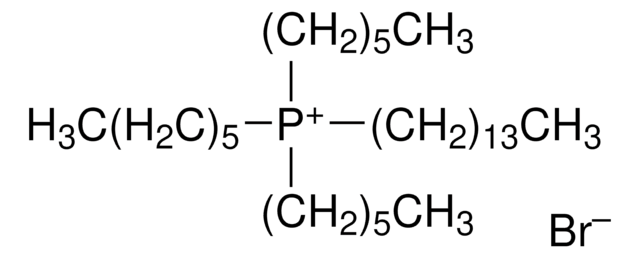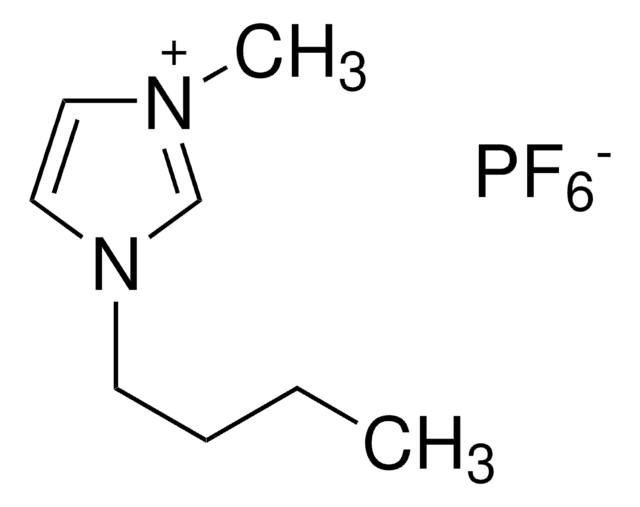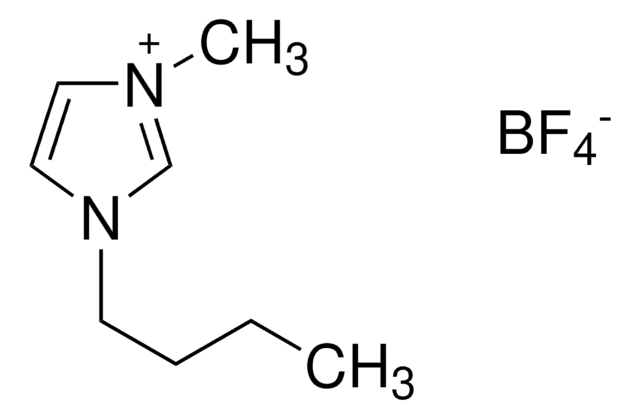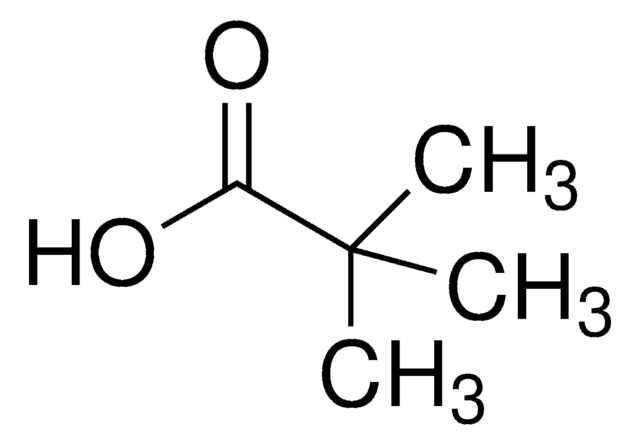50826
Trihexyltetradecylphosphonium decanoate
≥95.0% (NMR)
Synonyme(s) :
Tetradecyltrihexylphosphonium decanoate
About This Item
Produits recommandés
Niveau de qualité
Essai
≥95.0% (NMR)
Groupe fonctionnel
phosphine
Chaîne SMILES
CCCCCCCCCC([O-])=O.CCCCCCCCCCCCCC[P+](CCCCCC)(CCCCCC)CCCCCC
InChI
1S/C32H68P.C10H20O2/c1-5-9-13-17-18-19-20-21-22-23-24-28-32-33(29-25-14-10-6-2,30-26-15-11-7-3)31-27-16-12-8-4;1-2-3-4-5-6-7-8-9-10(11)12/h5-32H2,1-4H3;2-9H2,1H3,(H,11,12)/q+1;/p-1
Clé InChI
HQIPXXNWLGIFAY-UHFFFAOYSA-M
Catégories apparentées
Description générale
Application
Mention d'avertissement
Danger
Mentions de danger
Conseils de prudence
Classification des risques
Skin Corr. 1B
Code de la classe de stockage
8A - Combustible corrosive hazardous materials
Classe de danger pour l'eau (WGK)
WGK 3
Point d'éclair (°F)
Not applicable
Point d'éclair (°C)
Not applicable
Équipement de protection individuelle
Eyeshields, Faceshields, Gloves, type P3 (EN 143) respirator cartridges
Faites votre choix parmi les versions les plus récentes :
Déjà en possession de ce produit ?
Retrouvez la documentation relative aux produits que vous avez récemment achetés dans la Bibliothèque de documents.
Les clients ont également consulté
Notre équipe de scientifiques dispose d'une expérience dans tous les secteurs de la recherche, notamment en sciences de la vie, science des matériaux, synthèse chimique, chromatographie, analyse et dans de nombreux autres domaines..
Contacter notre Service technique

